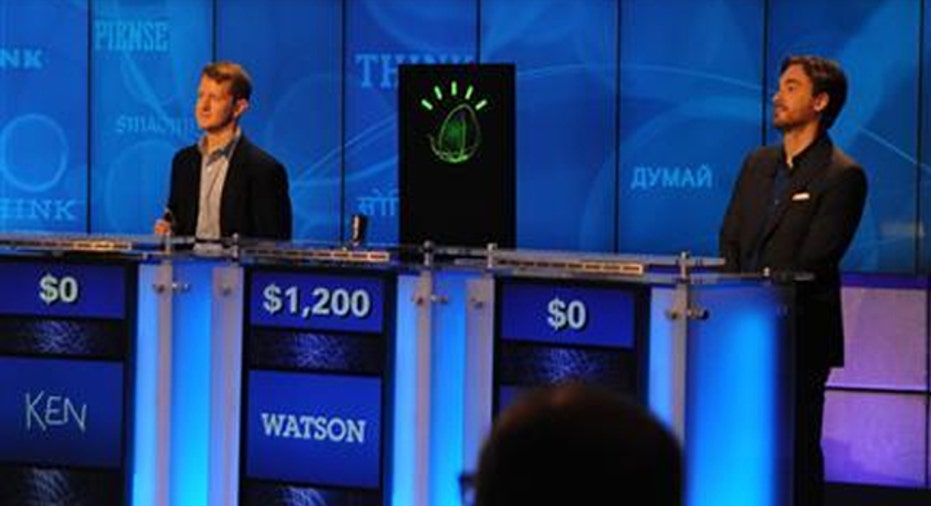Where's Watson's Jeopardy Loot? Fighting Malaria

First a genius, now a philanthropist.
After effortlessly defeating two former Jeopardy stars earlier this year, Watson is looking to use some of its prize money to help find a cure for the millions of people diagnosed with Malaria each year.
IBM (NYSE:IBM) and Scripps Research Institute are using the money Watson earned to fuel a global grid of computers that they hope will help scientists find a cure for the drug-resistant disease.
Malaria is one of the three deadliest infectious diseases on earth, along with HIV and tuberculosis, and where prevalent, the disease can account for as much as 40% of all public health-care costs. In 2006, about 247 million people became infected, and there is still no reliable cure or vaccine for the prevention and treatment of all forms of malaria.
Of the approximately one million Malaria-related deaths reported a year, 85% of those are children, according to Scripps. The disease is the leading cause of death in African children under the age of five.
"Curing the most malicious strains of malaria will be a boon to so many people on the planet, and will lead to conditions in which societies everywhere can flourish."
To help tackle the tragic problem, scientists from seven World Community Grid projects, which is a project run through the Scripps Institute that helps expedite the search for a cure, received half of the $1 million first-place prize awarded to Watson from Jeopardy earlier this year.
IBM’s world community grid, which has been called a “supercomputer of the people,” is a network of more than two million PCs whose idle CPU time has been donated by people from around the world.
When a computer on the grid is not in use, scientists take advantage of the spare time to search for different combinations of chemical compounds that might help stop the malaria parasite’s reproduction.
The project has already helped discover two promising new inhibitors of HIV to advance the treatment of multi-drug-resistant AIDS, and now, under a new program called the Global Online Fight Against Malaria, its creators are hopeful it will do the same for malaria.
Dr. Alexander Perryman, who is a research associate at Scripps, called the Fight Against Malaria the “largest computational research project ever performed against drug-resistant malaria.”
“We’re going to evaluate flexible versions of these little chemicals to see which ones combine to the right region and gum up the parasite’s machinery in order to prevent it from being able to survive and multiply,” he said.
By tapping the global grid, which turned seven-years old on Friday, research scientists hope to compress 100 years of computations normally necessary for this type of effort into just one year, according to Scripps and IBM.
Watson, which is a computer system created by IBM to test whether a machine could compete with a human’s ability to answer questions posed in natural language with speed, accuracy and confidence, beat both Ken Jennings, who holds the record for the longest win streak on Jeopardy, and Brad Rutter, the biggest all-time money winner on the game, this February in the show’s only human-versus-machine match-up.



















